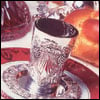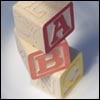9:1 A Thermostatically Controlled Oven
It is prohibited to open a thermostatically controlled oven on Shabbos, for opening the oven door would either cause the heat source to be turned on or be increased. However if the thermostat has been removed or turned off before Shabbos, the oven door may be opened. Furthermore, the oven door may be opened if the heat source is in operation.1
Another way of allowing the door to be opened is to leave the oven door slightly ajar from Erev Shabbos — which would allow a constant air flow into the oven — which would keep the heat source activated constantly.2
9:2 Electric Kettles
a) A kettle with only one temperature setting:
A kettle with only one temperature setting may be used on Shabbos. The water must be fully boiled before being drawn out.3
b) A kettle with a variable temperature setting:
If the kettle has a variable temperature setting, not only must the water be fully boiled before being drawn out, but in addition, the water must be boiled from before Shabbos.4
c) A kettle with a thermostat:
It is prohibited on Shabbos to draw water from a kettle that has a thermostat, even if the water in the kettle is fully boiled. The reason for this is that when the temperature of the water falls below a certain level, the kettle turns on automatically. It is obvious that a large quantity of water cools more slowly than a smaller quantity of water, and drawing water from the kettle causes the water to cool quicker and subsequently causes the thermostat to turn the kettle on more frequently than before.5
According to all opinions, one may use a kettle that switches itself on and off every few minutes (and is independent of the water temperature). With such a kettle, any drawing of water will not activate the heating element; rather, the kettle will follow its own on/off pattern no matter how much water is in the kettle.
Usage of the above kettles is permitted only when the tap is positioned above the heating element so that even if all the water until the tap were used there is no concern that the element would burn out. (On Shabbos, one should not tip the kettle to extract the water below the tap. This may cause the element to burn out and there is a concern that in that case, one might adjust the setting on Shabbos or add water.)6
d) A kettle on a time-clock:
It would be prohibited to attach an electric kettle to a time-clock if the clock was set to activate on Shabbos in such a way that there would be time for the water in the kettle to cool before the kettle was turned on. As mentioned previously, water that has fully cooled is subject to the laws of Bishul.7
9:3 Hot Plates
a) It is prohibited to place food on Friday to cook on a hot plate that will be activated on Shabbos by a time-clock. This is the case even if the hot plate is covered by a blech.8
b) Even if the food placed on the hot plate before Shabbos is fully cooked and is no longer subject to the rules of Bishul, e.g., a dry cooked food, it is preferable not to use a hot plate set on a time-clock to reheat the food on Shabbos. However there are variant opinions about this matter amongst the Poskim, and in case of need, a Rav should be consulted.9
c) On Shabbos itself, most Poskim are of the opinion that it would be prohibited to place a food, even if fully cooked (and in which case no Bishul applies), on a hot plate that is not presently activated but would be turned on later by a time-clock.10
9:4 Heating Systems
Most central heating systems work in the following way: Water is heated in a central boiler and the water is then pumped to all the radiators in the house. The boiler is controlled by a thermostat or regulator, and when the temperature falls below a certain level the boiler is activated.
Most radiators have a tap by which they may be turned on or off. In effect, closing the tap blocks off the water flow to the radiator and opening the tap allows the flow of water through the radiator. We shall now learn the dinim connected with such a system:
a) Opening the tap of a radiator:
It is prohibited to open the tap of a radiator on Shabbos.11
b) Closing the tap of a radiator:
If the water in the radiator has not reached the temperature of Yad Soledes Bo, all Poskim agree that one may not close the tap. Closing the tap in this case would have the effect of diminishing the quantity of water in the system, and would therefore cause the remaining water in the system to be heated faster. However if the temperature of the water in the radiator is Yad Soledes, there is a dispute among the Poskim if one may close the tap. In cases of great necessity, one may rely on the lenient opinion.12
c) Changing the temperature of the thermostat:
When the boiler is in operation, it is prohibited to alter the temperature of the thermostat. However when the boiler is not on, some Poskim allow the thermostat to be adjusted to a lower temperature but not to a higher temperature.13
d) Opening and closing windows:
If the thermostat that controls the temperature in the house is positioned close to a window so that opening the window would directly cause the boiler to be activated, that window may not be opened on Shabbos. However if the thermostat is not directly affected by the opening of the window, even though eventually and indirectly it will be affected, nevertheless opening a window in the room where the thermostat is positioned is permitted.14
e) Controlling the boiler by means of a time switch — altering the switch on Shabbos:
It should be noted that the following only applies to a manual time switch, e.g., that which has a dial, but not to an LCD digital display time switch in which case any adjustment by pressing any button is prohibited. Even with a manual timer, only the teeth on the dial may be adjusted, but it would be prohibited to unplug or disconnect the switch from the source in any way, even if one intends to reconnect it immediately.
On Shabbos it is permitted to alter the time switch (by moving the dials on the switch15) to delay activating the boiler, i.e., to make it go on at a later time. It is also permitted while the boiler is on to extend the time that it will be on, i.e., so that it should run longer.
However it is prohibited to hasten the time, i.e., to cause the boiler to turn on or off earlier.16
f) Placing wet towels or wet laundry on a radiator:
If the radiator will heat the towel to Yad Soledes, i.e., the water in the towel will be cooked, then it is prohibited to place towels or wet laundry on the radiator. This halachah commonly occurs after it has been raining. A person with wet clothes should be careful not to lean on the radiator in such a way that would cause a problem of Bishul.17 (This is apart from the question of when and whether one may move wet clothing — see Alter Rebbe’s Shulchan Aruch 301:59.)
After washing Netilas Yadayim, one should not place a wet towel on a hot radiator.18 (See Section 5:19)
It is also prohibited to place the wet item on a radiator that is now off but will later be turned on by a time switch.19








Join the Discussion